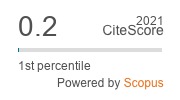Alleviating Sparsity and Cold-Start through Deep Learning-based Hybrid Recommender System
Keywords:
Hybrid Filtering, Deep Autoencoder, Product Recommendation, E-commerce, Sparsity, Cold-start, Click-rate, and Personalized Recommendation.Abstract
In the digital world, recommender system has become a prominent solution for handling information overload and satisfying the users over the millions of available products or services. In the large-scale recommender system, determining the precise preferences of the users is a fundamental challenging task. Hybrid filtering methods have provided suggestions for the target users based on the preferences of similar users and metadata information of the products. However, resolving the cold-start user constraint through collaborative filtering is a critical task in the e-commerce site. In addition, utilizing the explicit feedback alone is inadequate to extract the preferences of the users and handle the data sparsity and cold-start constraints in the recommender systems. Several existing recommendation models have adopted the deep learning models to handle the data sparsity and suggest the desired products to the users. Despite this, ensuring the quality of the recommendation in e-commerce sites for the cold-start users and sparse data is challenging. Hence, this work focuses on addressing the data Sparsity and Cold-start with the developed deep learning model based Hybrid based Recommender (SC-HR) system. The SC-HR approach models the deep autoencoder for the data representation and hybrid filtering to handle the data sparsity in e-commerce sites. It utilizes the textual with non-textual feedback of the users on the products as well as the metadata of the products to generate consistent representations for the user-product relationships. The user-product relationship expansion with consistency creates a significant impact on the personalized recommendations. The SC-HR approach utilizes implicit feedback such as the click-rate information to resolve the cold-start user constraint when there is a lack of feedback on the products. By applying the deep autoencoder, the SC-HR approach transforms the high-dimensional representation to low-dimensional representation with the potential information from the learning of the user and product features. Finally, the SC-HR approach determines the user preferences for the consistent and complete representation of the user-product relations and suggests personalized products. Thus, the experimental results demonstrate that the SC-HR approach yields 84.2% precision in the Amazon product recommendation system.



